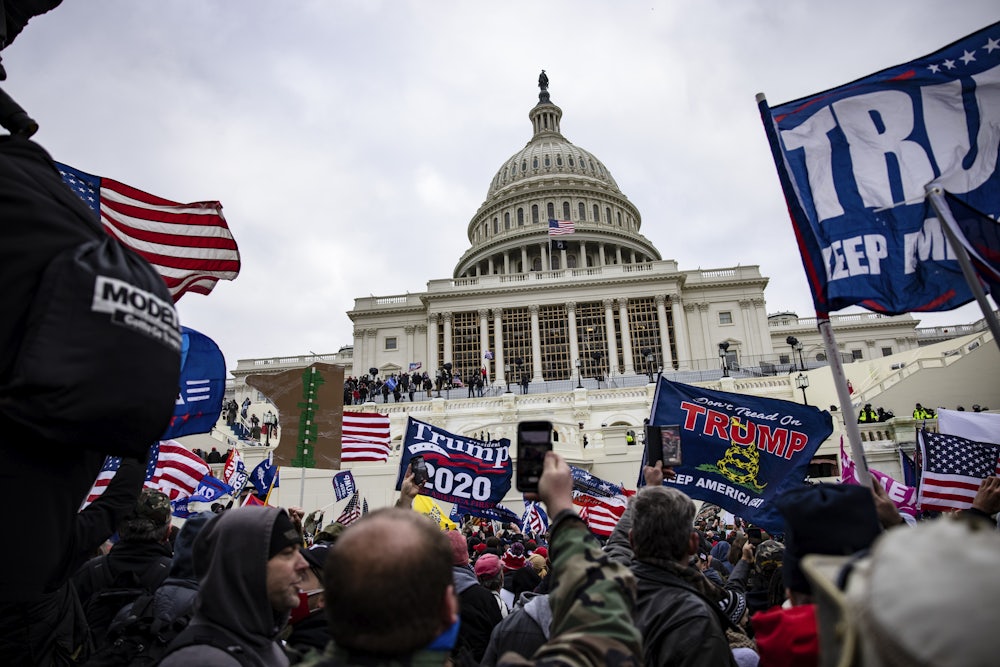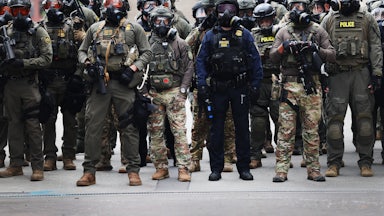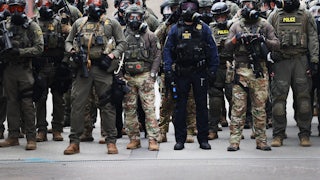Not long after rioters were finally cleared out of the Capitol on January 6, Republican senators condemned the assault—and, in practically the same breath, put it behind them. Mitch McConnell described it as a “failed insurrection,” emphasis on the past tense. Ted Cruz recommended that the “Department of Justice should vigorously prosecute everyone who was involved in these brazen acts of violence,” while pointedly exempting Donald Trump himself—despite the fact that the former president had, earlier that day, implored his supporters, “Fight like hell. And if you don’t fight like hell, you’re not going to have a country anymore.” Lindsey Graham, meanwhile, described the attempt to overturn the results of the election as the “the most offensive concept in the world.” He later added that he and Trump had “a hell of a journey” together, nonetheless. “I hate it to end this way,” Graham said. “Oh my god, I hate it.”
This was the end of the line, in other words. It was also the end of Republicans doing anything to make sure an attack on our democracy wouldn’t ever happen again. A month later, only seven Republicans crossed party lines to vote guilty in Trump’s second impeachment. Simultaneously, Republican legislators across the country passed laws to make it much harder for Democrats to cast ballots and much easier to overturn lawful and legitimate election results—a neat way of answering the question, “What if we came up with a legal way to overturn a legitimate election?”
The Republican Party—including most of those Republicans who condemned the riot at the Capitol on the day—has gleefully and nearly uniformly embraced measures that might sanctify a second attempt at overthrowing democracy. At the same time, Republicans have increasingly embraced some historical revisions on January 6: That it was a deep state–run, false flag operation aimed at crippling the president’s support; that the hundreds of Trump supporters who were arrested—and especially the one who was killed by a police officer while attempting to breach the Capitol—were martyrs.
A year later, it’s clear that while January 6 was the end of one era, it nevertheless kickstarted another that follows the same trajectory. The glimmer of hope that briefly shone after the Capitol had been cleared, portending the possibility of a fresh start, was quickly extinguished. For nearly five years, the lingering hope of the pundit class (and, notably, the Biden campaign) was that the Trump fever would eventually burn itself out and those so afflicted would awake from its throes eager to be normal again. Here, on January 6, was violence—bloodshed at the symbol of American democracy—that would surely, at long last, catalyze this change and lead many of Trump’s supporters to finally come back to reason.
It’s clear nowadays that January 6 catalyzed a much different change. The Republican Party is more committed to subverting American democracy than ever before. In fact, the GOP has transformed more completely into an authoritarian rump in the year since the Capitol riot than it had under four years of Trump. Over the last year, Republicans have taken the training wheels off; they have perfected the former president’s authoritarian, anti-democratic attitudes, remaking their party in his image, and managing most of these transformations without his presence or guidance. Aside from a handful of policy issues—nativist, anti-immigration measures at the top of a short list—the Republican Party is completely without any legislative agenda. But it does clearly have one fixation: Ensuring that Democratic voters cannot elect Democrats again.
In retrospect, the problem with January 6, as described by Republicans both then and now, was one of optics. There was too much violence. There wasn’t a clear plan. A literal assault on the Capitol was too clear a metaphor for what was really happening. And so the Republican Party has worked diligently to make sure that they can do it all again, but more quietly—the next time, with the help of pliant state legislatures, they might even be able to overturn a lawful election without any violence at all.
The overriding fixation on January 6 itself has, at times, obscured the ongoing machinations to ensure that future elections are easier to overturn: It inevitably places our focus on the past rather than the larger threats that have yet to come. Republicans have learned many lessons from the failures of January 6: They have purged those who have continued to condemn what happened from their ranks and installed true believers in positions where they can make a difference next time.
If not for the actions of a few individuals—Georgia Secretary of State Brad Raffensperger comes to mind—things could have turned out very differently a year ago. Now, 15 Republicans who have cast doubt on the legitimacy of the 2020 election are running for secretary of state—the office that oversees elections—across the country. Democrats, meanwhile, have struggled on both political and policy levels to get their message across. Republicans have not yet paid a political price for their drift toward authoritarianism. The Democratic Party’s bizarre commitment to the filibuster, meanwhile, has prevented adequate voting rights measures from being passed.
This is ultimately the lesson of January 6. Yes, the bloody scenes at the Capitol were a stain on American history. But another assault on American democracy is coming soon. Will the second attempt succeed? Republicans have spend the past year doing everything they can think of to ensure that it will, with or without Donald Trump.










